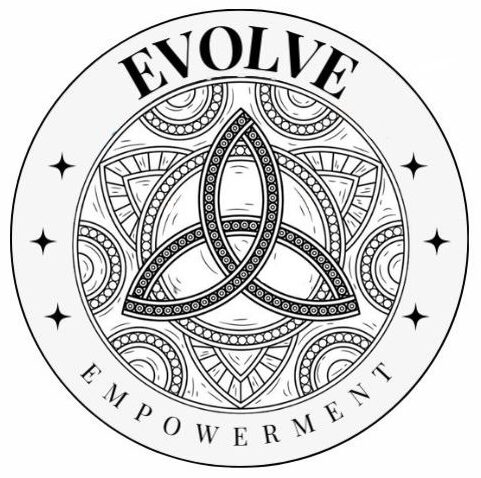The Transformative Power of Altruism
There are moments when we extend a hand, not expecting anything in return—only to realize that in doing so, we’ve touched something far deeper within ourselves. Helping others isn’t just a noble act.
It’s a mirror. A portal. A quiet rebellion against the sterile narcissism of modern life. And for those seeking genuine self-growth, it may very well be the missing piece.
In a world obsessed with self-improvement—biohacks, morning routines, success blueprints—we often forget the most ancient and powerful growth catalyst: compassion.
Genuine compassion is often messy, unpolished, and sometimes uncomfortable—it’s seldom flashy. In this article, we’ll explore the intersection of personal growth and selfless service, discovering that aiding others isn’t just a noble ideal—it’s an essential part of embracing our deepest humanity
Defining Self-Growth in the Modern Labyrinth
Self-growth today has become a monetized mantra. But beneath the buzzwords lies a hunger to become more whole. To remember who we are beneath the masks. Authentic self-growth involves shedding illusions, embracing discomfort, and expanding the psyche beyond ego.
But it doesn’t happen in isolation. The myth of the lone hero is seductive—but incomplete. We grow most meaningfully in relation to others. In the friction of empathy. In the humility of service.
The Psychology of Giving: Healing in Disguise
Altruism rewires the brain. Numerous studies point to its effect on oxytocin production, lowered stress, and improved emotional regulation.
But the science, while useful, can’t touch the poetry of it: the way a single act of kindness can shift an entire day, or how the simple act of listening can feel like salvation.
Helping others gives us access to parts of ourselves we didn’t know existed. And through this access—through this radical decentering of the self—we begin to bloom.

Unveiling the Self through Service
When I volunteered at a shelter during a particularly empty season of life, I didn’t expect clarity. Yet it was there—amid the chaos and cardboard coffee cups—that I found something sacred. In listening to others’ stories, I saw mine differently. Pain refracted. Identity reshuffled.
By showing up for others, we shed performance. We get out of our heads. We discover dormant strengths—resilience, patience, grit. Not the Instagram kind, but the quiet, invisible muscles of character.
And perspectives—oh, the perspectives. They crack our small worlds wide open. We start seeing not just through eyes, but through hearts. That shift alone can alter the trajectory of a life.
Every ripple of kindness polishes the mirror of who we are. Slowly, through the accumulation of small, thankless acts, character is carved. It’s not always pretty. But it is real.
You can also read this article if you want to deepen your knowledge on self-awareness issues.
Learning Skills Through Empathy and Interaction
Empathy is not a warm fuzzy—it’s a skill. A muscle. One strengthened by contact with others, especially those different from us. In learning to hold space, to read subtle cues, to tolerate discomfort—we stretch. Our emotional intelligence deepens not through books, but through proximity to other beating hearts.
Altruistic involvement sharpens communication. We learn how to truly listen, how to negotiate tension, how to build bridges where once there were walls. These aren’t just soft skills—they’re life tools. Useful in business, relationships, and even in navigating our own tangled inner dialogues.
And then there’s practical knowledge. Community work teaches organization, resilience, and leadership. Many who’ve taken this route later build entire careers around it. If you’re interested in transforming those skills into income, platforms like Wealthy Affiliate offer not just training, but community—something that mirrors the very philosophy of giving and receiving.
For those who feel drawn to spiritual and practical empowerment, programs like this self-development guide and this manifestation program provide paths forward that align with inner growth through outer expression.
Creating a Balanced Life through Giving Back
We often assume that giving takes away from us. If we give too much, we’ll deplete. But real altruism isn’t martyrdom—it’s a dance of balance. When offered consciously, helping becomes replenishing.
Mentally, the rewards are profound. Increased happiness. Lower anxiety. A deeper sense of meaning. When we give, we interrupt our pain loops. We remember we’re not alone. Even in despair, connection is available.
The key is integration. You don’t need to join a monastery. Begin small. A daily intention. A weekly action. Smile. Help a neighbor. Start a digital side-hustle that empowers others and yourself—ideally one that feeds your soul while also supporting your finances.
Give without an agenda, but not without boundaries. Growth happens where care meets clarity.

Ascent to Full Self-Growth through Giving
The journey toward becoming fully ourselves is not a straight line. It twists through loss, grace, revelation—and yes, through service. Helping others doesn’t take us away from ourselves. It returns us home.
In giving, we find our edges. In receiving nothing, we gain everything. And in this strange paradox lies the truth: we rise by lifting others.
So start today. Not perfectly. Not with a five-year plan. Just with one small act. Let it crack open the shell. Let it echo.
Because sometimes, the only way to grow… is to reach.
FAQ
Is helping others truly linked to personal growth? Yes. Both scientific research and lived experience show that helping others boosts mental health, increases self-awareness, and enhances life satisfaction.
What are some practical ways to start giving back? Volunteer, donate, offer skills online, or simply engage meaningfully with those around you.
Can helping others also lead to income or career opportunities? Absolutely. Many platforms—like Wealthy Affiliate—teach how to build businesses rooted in service and value creation.
How do I balance my needs while helping others? Set boundaries. Listen to your energy. Give from overflow, not obligation.
Where can I find more tools for combining altruism and personal growth? Start with platforms like this growth blueprint or explore manifestation-based approaches here.
Bibliography
- Post, S. G. (2005). Why Good Things Happen to Good People. Broadway Books.
- Ricard, M. (2015). Altruism: The Power of Compassion to Change Yourself and the World. Little, Brown and Company.
- Lyubomirsky, S. (2007). The How of Happiness. Penguin Press.
- Dacher Keltner (2009). Born to Be Good: The Science of a Meaningful Life. W. W. Norton & Company.
Disclosure: This article may contain affiliate links. If you click on these links and make a purchase, I may earn a commission at no extra cost to you.


I really enjoyed reading this post — the breakdown of TaskMaster Pro, WorkFlow Optimizer, and Efficiency Booster made it clear why those apps are leading the productivity field in 2025. I especially appreciated the emphasis on trying free trials and matching features to specific needs. Your implementation tips—like starting small, customizing settings, and reviewing results—feel practical and very actionable. I’m curious: in your experience or from user feedback, have you seen one of these apps work especially well for small teams versus individuals?
Thank you very much, Hanna
I am delighted that you enjoyed the article I wrote, and I am pleased that it was helpful to you. I am also very glad that you have read an article of mine entitled ”Using Technology To Enhance Productivity. Best Apps Of 2025”
The Answer to the question you asked me about the applications. They have been created to help both individuals and groups of people. I wish you good luck in implementing these applications for your benefit.
Mitia